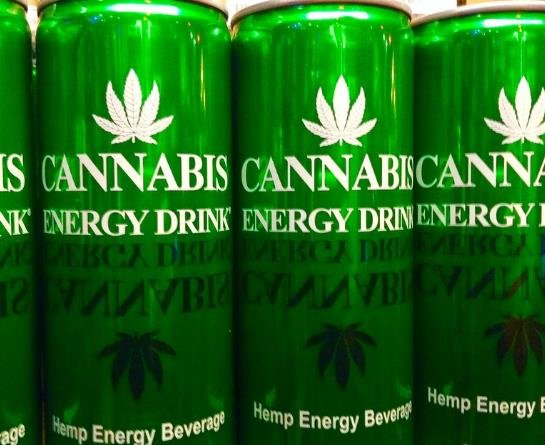A growing patchwork of state bans and restrictions is putting serious pressure on the once-explosive hemp-derived THC industry. After years of meteoric growth following the 2018 Farm Bill, small operators now face rules they say could dismantle their businesses altogether.
The shift comes as lawmakers weigh safety concerns, regulatory gaps, and the political tug-of-war between legacy industries and rising challengers. At the heart of the storm? Who gets to sell – and who gets left behind.
Hemp’s Big Break Meets the Regulatory Wall
The hemp industry exploded in 2018 when the federal Farm Bill legalized hemp production, opening the floodgates to a new wave of THC products. These include delta-8, delta-10, and other hemp-derived cannabinoids that mimic the psychoactive effects of marijuana — but with a legal loophole.
For small hemp businesses, the Farm Bill was a windfall. They could make and sell THC-like products without needing a traditional cannabis license. In many states, they also dodged the stricter regulations applied to marijuana dispensaries.
But now, state lawmakers are stepping in. From New York to Kentucky to New Jersey, they’re introducing restrictions, citing public health concerns and the need for clearer oversight.
One operator summed it up bluntly: “The rules keep changing, and we’re the ones getting squeezed.”

New Jersey’s Liquor Store Law Sparks Backlash
A flashpoint came last autumn when New Jersey Governor Phil Murphy signed legislation that reshaped the hemp THC beverage market. The new law limits sales of hemp-derived THC drinks to licensed liquor stores — cutting off online and direct-to-consumer sales, which many small producers depend on.
That move sent a jolt through the industry.
Shawn Hauser, a cannabis policy expert and partner at Vicente LLP, said the law represents more than a logistical hiccup.
“Direct-to-consumer sales are a core component to their business,” she said. “And that doesn’t fit squarely within the alcohol model.”
Operators now worry that New Jersey’s law is the start of a broader trend. They see it as a wedge for big alcohol to control access to hemp THC — a strategy that could upend the independent model many built from scratch.
Big Alcohol’s Shadow Looms Larger
The tension isn’t just regulatory — it’s generational and cultural, too.
Younger consumers are turning away from booze. A 2023 Gallup poll found that alcohol consumption among U.S. adults under 35 had dropped significantly over the last decade, while interest in cannabis and hemp alternatives climbed.
That shift has legacy industries on high alert. Some in the hemp space believe large alcohol companies are behind lobbying efforts to corral the market into their existing retail channels — like liquor stores — as a way to get ahead of waning alcohol demand.
“They want to control the taps,” said one Minnesota-based beverage maker. “And we’re standing in the way.”
• Hemp operators fear big alcohol interests are using regulation to dominate distribution
• Direct sales are crucial to small business survival
• Lawmakers are increasingly siding with traditional retail frameworks
State-by-State Chaos and Confusion
Part of the frustration stems from a lack of uniformity. There’s no federal regulation specifically governing hemp-derived THC, so states are filling the vacuum with wildly different rules.
Here’s a brief snapshot of current state policies:
| State | Current Status |
|---|---|
| New Jersey | Hemp THC beverages only sold at liquor stores |
| Minnesota | Legal, but under strict potency and packaging rules |
| New York | Banned delta-8 and other hemp-derived cannabinoids |
| Kentucky | Ban on intoxicating hemp products passed in 2023 |
| Texas | Legal but constantly challenged in court |
| California | Allows hemp THC, but with tough restrictions on food and drink forms |
For businesses operating in multiple states, the legal maze is exhausting. One Tennessee-based CEO called it “a compliance nightmare,” saying the same product could be legal in one ZIP code and banned a few miles away.
And enforcement? It’s inconsistent. Some states do regular inspections, others barely glance. The result: confusion for retailers and customers alike.
Legal Gray Zones Fuel More Fears
The federal government has been largely silent on hemp-derived intoxicants since the 2018 Farm Bill. That silence has created what some call a legal gray zone — and others call chaos.
Without a clear stance from Congress or the FDA, each state is left to decide how far it wants to go. That ambiguity has triggered lawsuits, cease-and-desists, and conflicting interpretations that change almost weekly.
Hauser said, “We’re in this weird place where it’s federally legal, kind of — but every state’s doing their own thing. That’s incredibly hard for businesses.”
For small hemp companies already stretched thin, even small shifts in rules can mean the difference between staying open or folding.
The Future? Unclear, But Likely Smaller Players Get Squeezed
What happens next is uncertain. Congress is due to revisit the Farm Bill, but any changes may be slow — or heavily lobbied.
Meanwhile, big alcohol and big cannabis keep gaining ground, with better access to regulators and deeper pockets for legal fights. Some operators say they’re already feeling edged out by bigger brands with the capacity to comply with changing state rules.
A few are pivoting to non-THC hemp wellness products or focusing only on states with clearer laws.
Others aren’t so lucky.
“There’s no safety net for us,” said a North Carolina hemp shop owner. “We’re just waiting for the next shoe to drop.”
